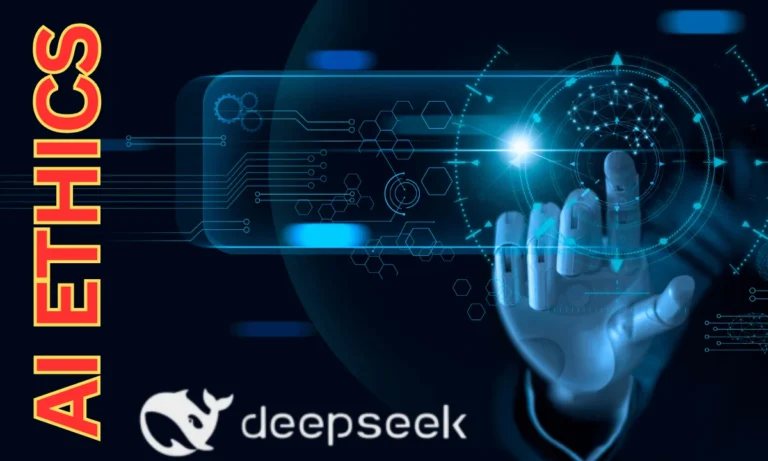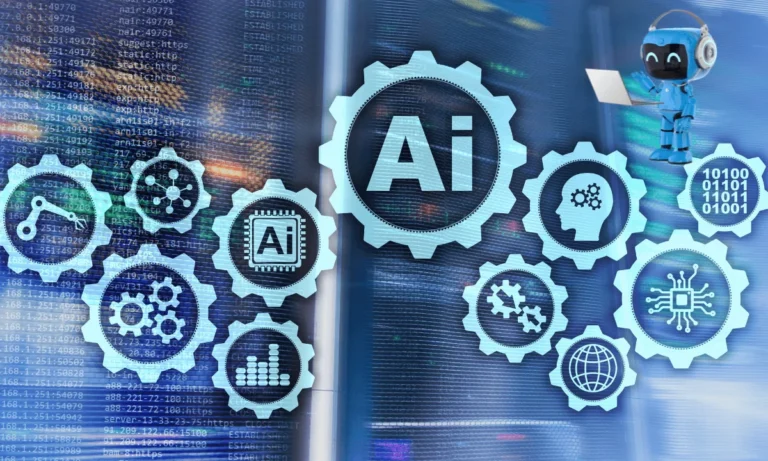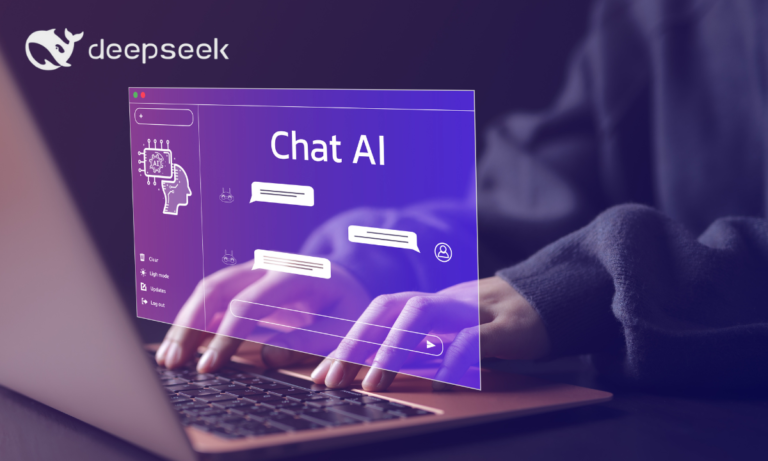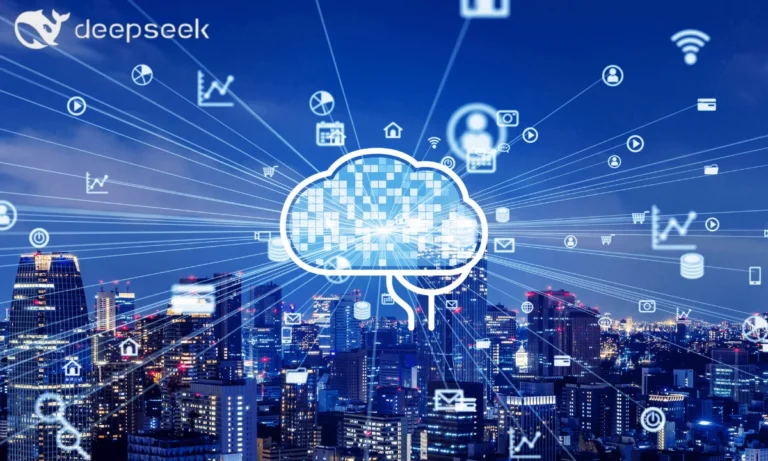Machine Learning 101: How AI is Revolutionizing Industries in Pakistan
Machine Learning 101
Machine Learning 101: In recent years, Artificial Intelligence (AI) and Machine Learning 101 (ML) have emerged as transformative technologies, reshaping industries across the globe. Pakistan, a country with a rapidly growing tech ecosystem, is no exception. From healthcare to agriculture, finance to education, AI and ML are revolutionizing traditional practices, driving efficiency, and unlocking new opportunities. This article delves into the basics of Machine Learning, its applications, and how it is transforming industries in Pakistan.
Chinese AI-Powered Chatbot “DeepSeek” Causes $1 Trillion Loss for Major U.S. Companies
What is Machine Learning?
Machine Learning is a subset of Artificial Intelligence that focuses on building systems that can learn from data, identify patterns, and make decisions with minimal human intervention. Unlike traditional programming, where a developer writes explicit instructions for a computer to follow, ML algorithms are trained on large datasets to recognize patterns and make predictions or decisions.
There are three main types of Machine Learning:
- Supervised Learning: The algorithm is trained on labeled data, meaning the input data is paired with the correct output. The goal is to learn a mapping from inputs to outputs. Examples include spam detection in emails and predicting house prices.
- Unsupervised Learning: The algorithm is given data without explicit instructions on what to do with it. The system tries to find patterns or structures within the data. Clustering and dimensionality reduction are common unsupervised learning tasks.
- Reinforcement Learning: The algorithm learns by interacting with an environment, receiving rewards or penalties for actions, and aims to maximize the cumulative reward. This type of learning is often used in robotics and game playing.
Predictive Analytics: Forecasting Pakistan’s Economic Growth with AI
The Rise of AI and ML in Pakistan
Pakistan’s tech industry has been growing at an impressive rate, with a young, tech-savvy population and increasing internet penetration. The country has also seen a surge in startups and tech hubs, particularly in cities like Karachi, Lahore, and Islamabad. This growth has created a fertile ground for the adoption of AI and ML technologies.
Several factors have contributed to the rise of AI and ML in Pakistan:
- Government Initiatives: The Pakistani government has recognized the potential of AI and has taken steps to promote its adoption. Initiatives like the “Digital Pakistan Vision” aim to transform the country into a knowledge-based economy, with a focus on emerging technologies like AI, ML, and blockchain.
- Educational Institutions: Universities in Pakistan are increasingly offering courses and programs in AI, ML, and data science. Institutions like LUMS, NUST, and FAST are producing a new generation of skilled professionals who are driving innovation in the field.
- Tech Startups: Pakistan’s startup ecosystem is booming, with many companies leveraging AI and ML to solve local problems. From fintech to healthtech, startups are using these technologies to create innovative solutions that cater to the needs of the Pakistani market.
- Global Collaboration: Pakistani tech professionals and companies are collaborating with international organizations and participating in global AI research. This exchange of knowledge and expertise is helping to accelerate the adoption of AI and ML in the country.
DeepSeek AI: A Beginner’s Guide to Pakistan’s Cutting-Edge Technology
How AI is Revolutionizing Industries in Pakistan
1. Healthcare
The healthcare sector in Pakistan faces numerous challenges, including a shortage of medical professionals, inadequate infrastructure, and limited access to quality care in rural areas. AI and ML are helping to address these issues by enabling more accurate diagnostics, personalized treatment plans, and efficient healthcare delivery.
- Diagnostics: AI-powered diagnostic tools are being used to analyze medical images, such as X-rays and MRIs, with high accuracy. For example, AI algorithms can detect early signs of diseases like tuberculosis and cancer, allowing for timely intervention.
- Telemedicine: With the rise of telemedicine platforms, patients in remote areas can now consult with doctors via video calls. AI-powered chatbots are also being used to provide preliminary diagnoses and medical advice, reducing the burden on healthcare providers.
- Drug Discovery: AI is accelerating the drug discovery process by analyzing vast amounts of biological data to identify potential drug candidates. This is particularly relevant in the context of diseases like COVID-19, where rapid drug development is crucial.
2. Agriculture
Agriculture is the backbone of Pakistan’s economy, employing a significant portion of the population. However, the sector faces challenges such as water scarcity, pest infestations, and low crop yields. AI and ML are being used to optimize agricultural practices and improve productivity.
- Precision Farming: AI-powered drones and sensors are being used to monitor crop health, soil conditions, and weather patterns. This data is then analyzed to provide farmers with actionable insights, such as the optimal time to plant, irrigate, or harvest crops.
- Pest Control: ML algorithms are being used to detect and predict pest infestations, allowing farmers to take preventive measures. This reduces the need for chemical pesticides, leading to more sustainable farming practices.
- Crop Yield Prediction: By analyzing historical data and current conditions, AI models can predict crop yields with high accuracy. This helps farmers make informed decisions about crop selection and resource allocation.
3. Finance
The financial sector in Pakistan is undergoing a digital transformation, with AI and ML playing a key role in enhancing customer experience, improving risk management, and detecting fraudulent activities.
- Credit Scoring: Traditional credit scoring methods often exclude individuals with no credit history. AI-powered credit scoring models analyze alternative data sources, such as mobile phone usage and social media activity, to assess creditworthiness. This enables financial institutions to extend credit to underserved populations.
- Fraud Detection: ML algorithms are being used to detect fraudulent transactions in real-time. By analyzing patterns and anomalies in transaction data, these systems can identify suspicious activities and alert financial institutions.
- Personalized Banking: AI-powered chatbots and virtual assistants are being used by banks to provide personalized financial advice and customer support. These tools enhance customer experience by offering 24/7 assistance and tailored recommendations.
Mastering DeepSeek in Pakistan: A Comprehensive Guide to AI-Powered Solutions
4. Education
The education sector in Pakistan faces challenges such as a lack of access to quality education, outdated curricula, and a shortage of qualified teachers. AI and ML are being used to address these issues and create more personalized and effective learning experiences.
- Adaptive Learning: AI-powered adaptive learning platforms analyze students’ performance and tailor educational content to their individual needs. This ensures that students learn at their own pace and receive targeted support in areas where they struggle.
- Automated Grading: ML algorithms are being used to automate the grading of assignments and exams, reducing the workload on teachers and providing faster feedback to students.
- Virtual Classrooms: With the rise of online education, AI-powered virtual classrooms are becoming increasingly popular. These platforms use AI to enhance the learning experience by providing interactive content, real-time feedback, and personalized recommendations.
The Metaverse and AI: A New Digital Frontier for Pakistan
5. Retail
The retail industry in Pakistan is also benefiting from AI and ML technologies, which are being used to optimize supply chains, enhance customer experience, and drive sales.
- Inventory Management: AI-powered inventory management systems analyze sales data and predict demand, helping retailers optimize stock levels and reduce waste.
- Personalized Marketing: ML algorithms analyze customer data to create personalized marketing campaigns. By understanding customer preferences and behavior, retailers can offer targeted promotions and recommendations, increasing customer engagement and loyalty.
- Customer Service: AI-powered chatbots are being used by retailers to provide instant customer support, answer queries, and assist with online purchases. This improves customer satisfaction and reduces the need for human intervention.
DeepSeek AI’s Vision for Ethical AI Governance in Pakistan
Challenges and Future Prospects
While the adoption of AI and ML in Pakistan is promising, there are several challenges that need to be addressed:
- Data Availability: High-quality data is essential for training ML models. However, in Pakistan, data collection and sharing practices are often inadequate, limiting the effectiveness of AI solutions.
- Skill Gap: Despite the growing number of AI and ML courses, there is still a shortage of skilled professionals in Pakistan. More investment in education and training is needed to bridge this gap.
- Infrastructure: Reliable internet connectivity and computational resources are crucial for the development and deployment of AI solutions. In many parts of Pakistan, infrastructure limitations hinder the adoption of these technologies.
- Ethical Concerns: The use of AI raises ethical concerns related to privacy, bias, and accountability. It is important for policymakers and industry leaders to establish guidelines and regulations to ensure the responsible use of AI.
Despite these challenges, the future of AI and ML in Pakistan is bright. With continued investment in education, infrastructure, and research, Pakistan has the potential to become a regional leader in AI innovation. As more industries embrace these technologies, the country is poised to experience significant economic growth and improved quality of life for its citizens.
Understanding and Fixing the 500 Internal Server Error on DeepSeek.com
Conclusion Of Machine Learning 101
Machine Learning 101 and Artificial Intelligence are no longer just buzzwords; they are powerful tools that are transforming industries and driving innovation in Pakistan. From healthcare to agriculture, finance to education, AI and ML are solving complex problems and creating new opportunities. As the country continues to invest in these technologies, the potential for growth and development is immense. The revolution is just beginning, and the future of AI in Pakistan looks promising.
By embracing AI and ML, Pakistan can not only address its current challenges but also position itself as a leader in the global tech landscape. The journey is not without obstacles, but with the right strategies and investments, the possibilities are endless. The time to act is now, and the future is AI.
The Future of DeepSeek AI: Innovations, Challenges, and Global Impact







